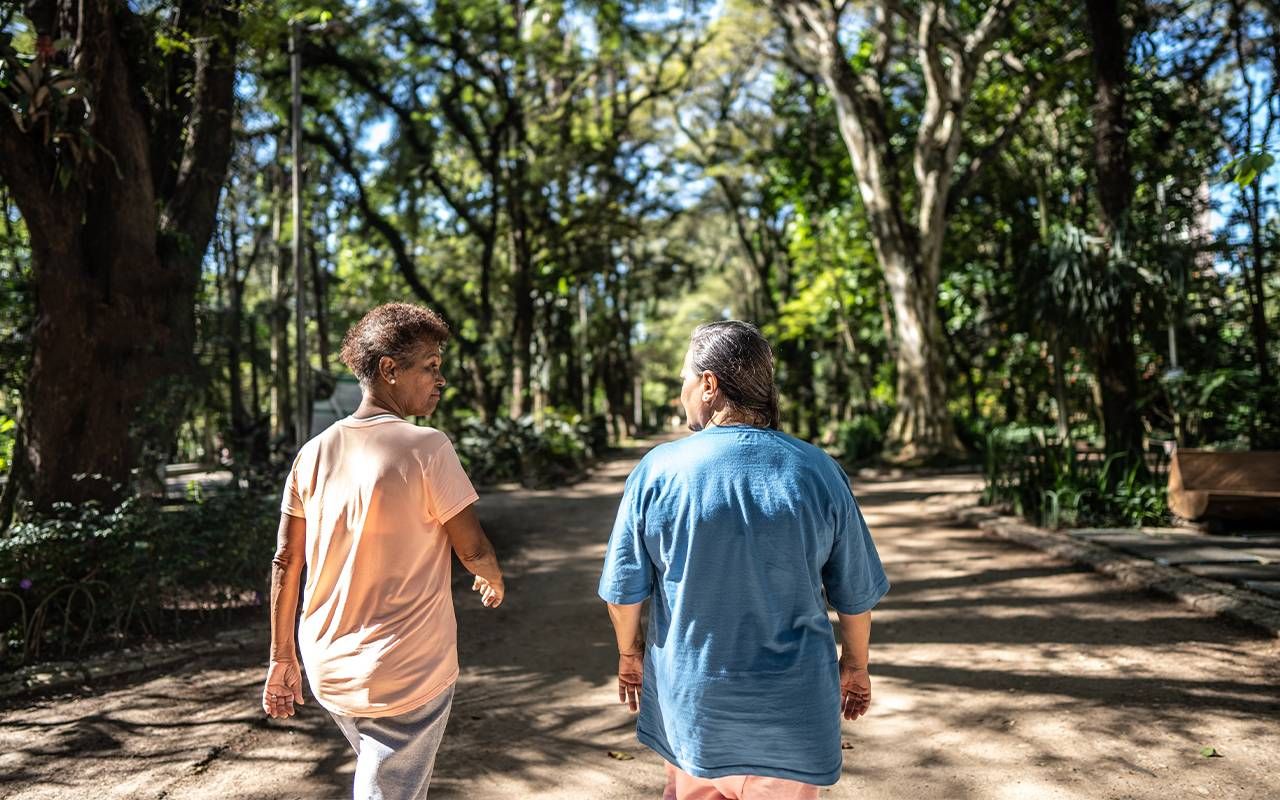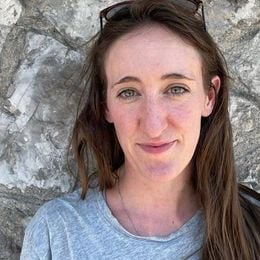South Texas Communities Seek to Support Dementia Caregivers
Family members and loved ones are impacted by financial costs, daily care and the emotional toll of seeing a loved one decline
Dee Dee Diaz's mother was able to walk but fell often. She needed help to bathe. Diaz's father was struggling as his wife's health declined. The change from the life she and her husband led in Florida was significant for Diaz. And she didn't have anywhere to look for guidance or support navigating the myriad responsibilities and emotions involved with caring for a loved one.

"It was so difficult for me," Diaz says. "I didn't have any experience in caregiving." Diaz is not alone. Laredo has one of the highest rates of dementia in the country. In Webb County, which includes Laredo, 15% of adults over age 65 are living with Alzheimer's disease or another form of dementia, according to data released by the Alzheimer's Association in July.
Dementia disproportionately affects older Hispanic adults in the U.S., who are 50% more likely than non-Hispanic white adults to develop Alzheimer's Disease or a related condition.
In some regions along Texas' southern border, medical and pharmacy records suggest between 20% and 23% of adults over age 60 have dementia, according to neuroscientist Gladys Maestre, who notes those numbers don't account for people not accessing health care.
Maestre is leading the Alzheimer's Disease Resource Center for Minority Aging Research at the University of Texas Rio Grande Valley, based southwest along the border from Laredo, which is researching the impacts of dementia among Hispanic people.
Dementia disproportionately affects older Hispanic adults in the U.S., who are 50% more likely than non-Hispanic white adults to develop Alzheimer's disease or a related condition. For every person living with dementia, Maestre notes, their family members and loved ones are also impacted, involved with financial costs, day-to-day care, and the emotional toll of seeing a loved one decline.
The high rate of the condition in this region, where many families are Hispanic, Latino or Mexican-American, has raised awareness of the need not only for services that support individuals living with dementia but also for the people who care for them.
Changes in Behavior
Diaz and her siblings started noticing changes in their mother about a decade ago. Diaz's mother had been an English teacher at a community college for more than 30 years, then, after retiring, trained as a lawyer. Diaz says she was an avid reader but lost interest in going to book club and bible study.
"The fact that she quit reading, to me, was the big shocker," Diaz says. "She always had stacks of books by her bedside." Diaz was living in Florida with her husband, but when her mother's health declined, they decided to return to Laredo.
The oldest daughter in the family, she had more flexibility than her siblings to help her parents. While navigating caregiving was challenging, a residential facility was never an option. Aside from the expense, her mother had been adamantly against it. Diaz never considered a nursing home, which she says is common in Latino culture.
"It's just out of respect and honor," Diaz says. "They took care of you. They raised you."
Initially, Diaz took on caregiving responsibilities herself. She ran into a friend who gave her a number for hospice care. But Diaz didn't reach out immediately. Navigating the practical and financial aspects of care was very difficult. "I wasn't sure even how to call hospice," she says. "Does she qualify? Can we afford it?"
"They took care of you. They raised you."
Now Diaz's family has some support, including from caregivers and hospice. But the emotional toll is still significant, she says. "It's a double whammy because you're dealing first of all with a parent who is in decline, and then you deal with what you must give up to take care of that parent."
Joe Arciniega is trying to make it easier for caregivers like Diaz in Laredo. Arciniega, now on the board of directors of the Alzheimer's Association, cared for his father as he was living with Alzheimer's. Arciniega recalls how challenging it was to adapt as his father's behaviors and needs changed.
"That is the experience of the caregiver. Nothing stays the same because the disease doesn't stay the same," Arciniega says. "It doesn't give you a break for long." Arciniega found some help calling a hotline for the Alzheimer's Association in San Antonio, where his father lived. But there was no place to turn in his city. "In Laredo, there was nothing," he says. "Just nothing."
Building Community Support
Now, Arciniega and others in Laredo are ramping up support in the community for people and families affected by dementia, launching monthly support groups and education sessions. In September, a caregiver conference will feature a wealth of practical information, including advanced directives, insurance, retrofitting homes and much more.
Arciniega says that while there have been positive steps lately in developing a treatment for Alzheimer's, it's essential to connect caregivers with the resources to better deal with their situations. "We have a duty to give people applicable tools," he says.
"What this means in terms of caregivers is that it's very hard for a daughter or spouse or even a provider to reach out for help, to say 'I'm tired, I need a break.'"
While caregivers spend so much of their time and energy looking after their loved ones, they often have their own physical and mental health issues, according to Maestre. She explains they have less time for fitness, self-care and going to their medical appointments. Anxiety, depression and trouble sleeping are common.
Caregivers often are socially isolated because they have less time to engage with their social networks. Cultural values significantly shape the experience of caregiving, explains Maestre.
"Values become like a script," she says. "So when you behave according to your values, you feel good, even though you might not be fully conscious that you're following the script."
In this Hispanic-majority region, family is often seen as a central obligation, meaning that caregivers may prioritize the needs of their loved ones over their own. Women particularly often feel a responsibility to be vital to the family.
"What this means in terms of caregivers is that it's very hard for a daughter or spouse or even a provider to reach out for help, to say 'I'm tired, I need a break,'" she says.
According to Maestre, efforts to build up resources in South Texas supporting caregivers can be beneficial. She sees events like those in Laredo as opportunities to reach out to and connect with people across the community who need services and support.
To be effective, she says, these efforts should be tailored to their audiences, reflecting their values and cultures. It's easy for potential attendees to assume that caregiver events aren't relevant for them, Maestre says.
But incorporating the culture and values of community members can engage more caregivers. "That's the beauty of encountering people that are in the same situation as you," she says.


